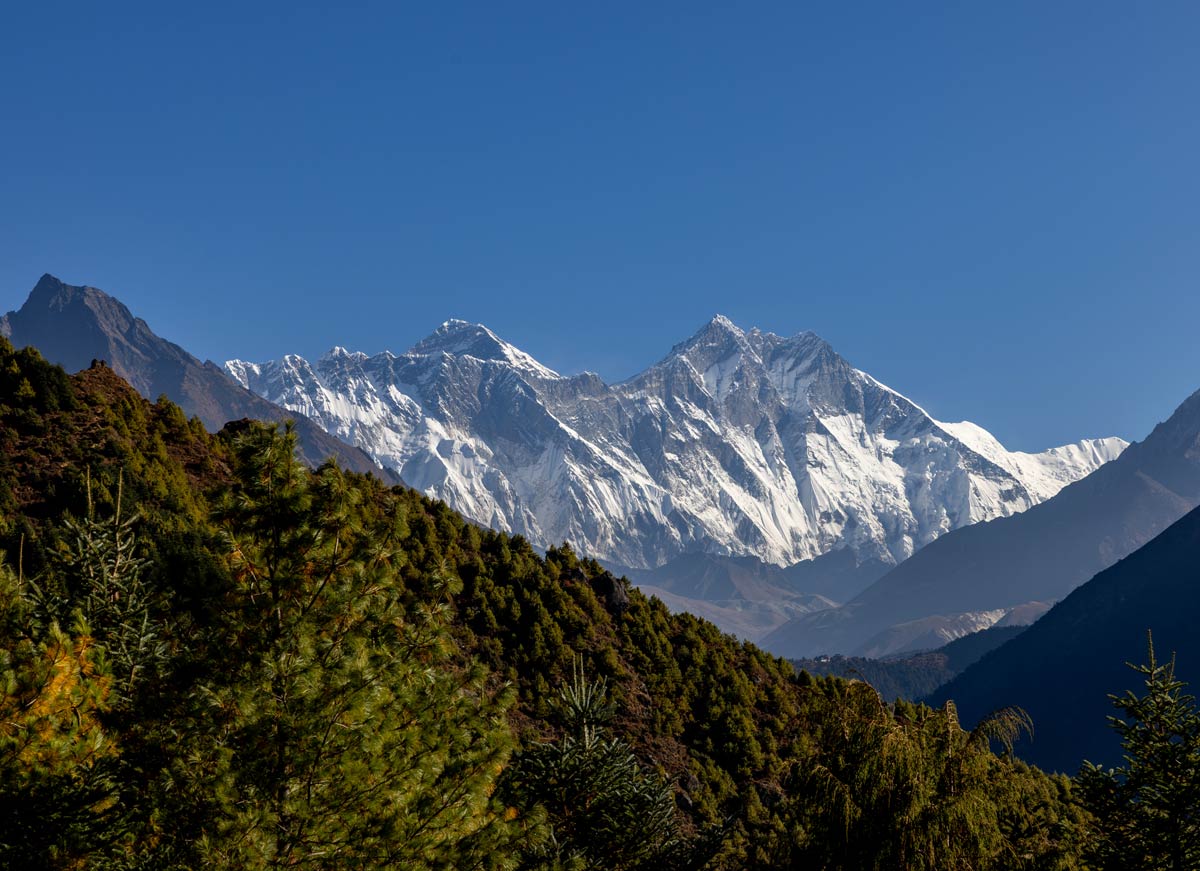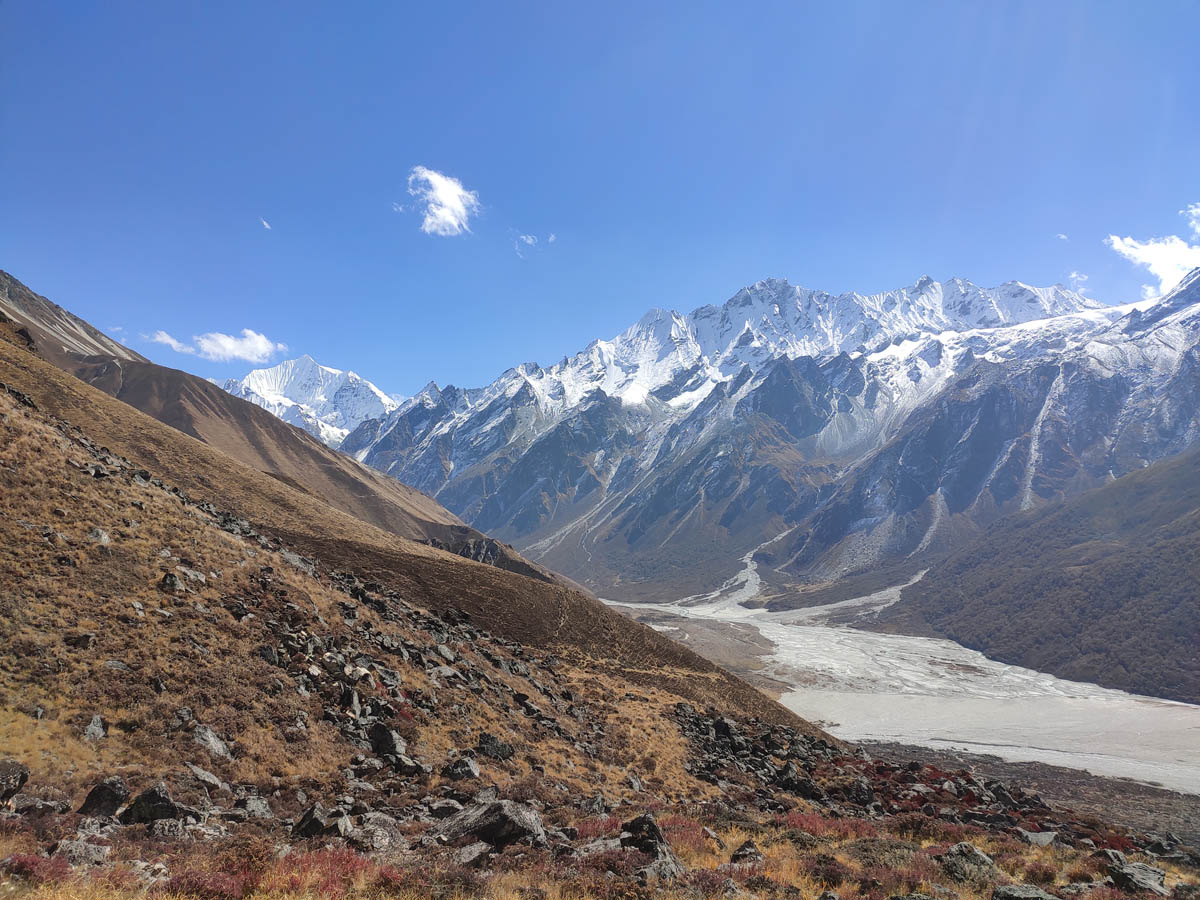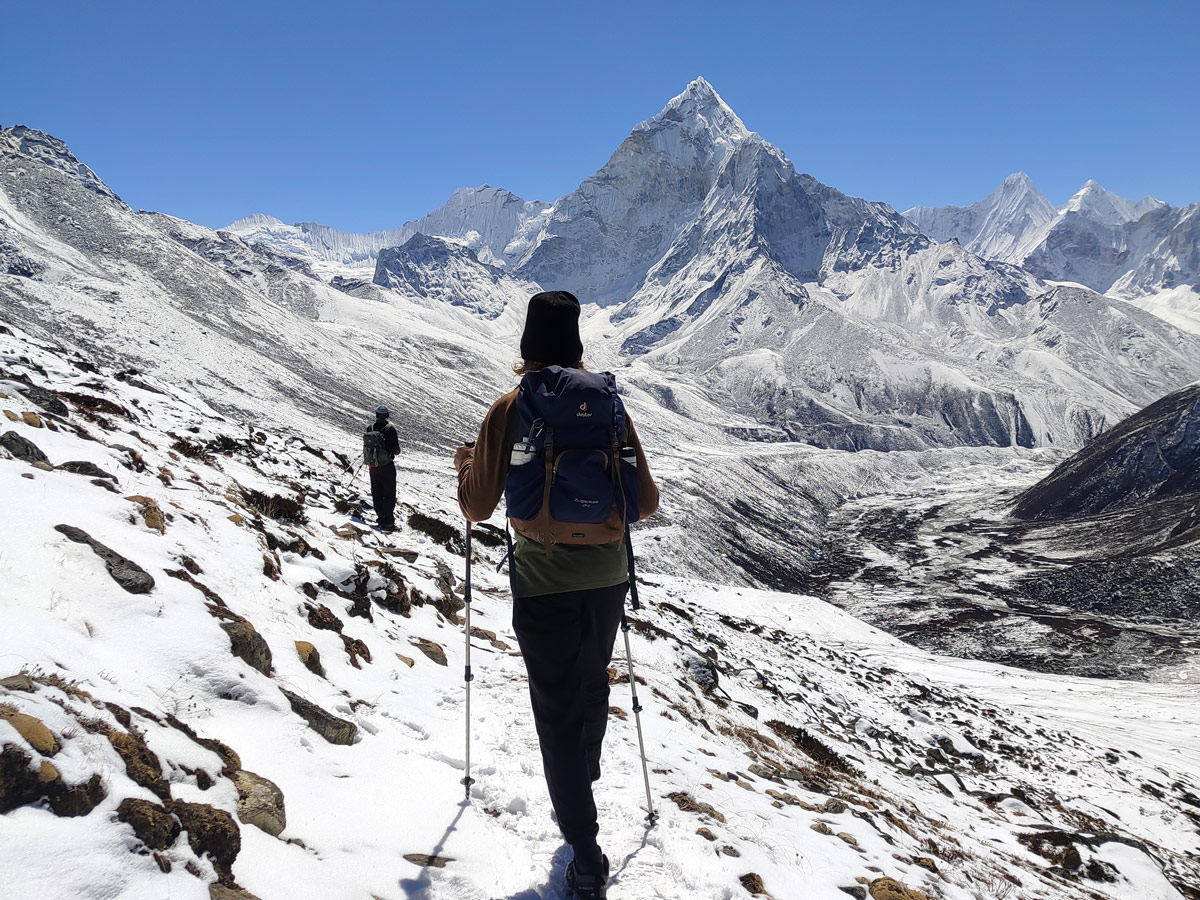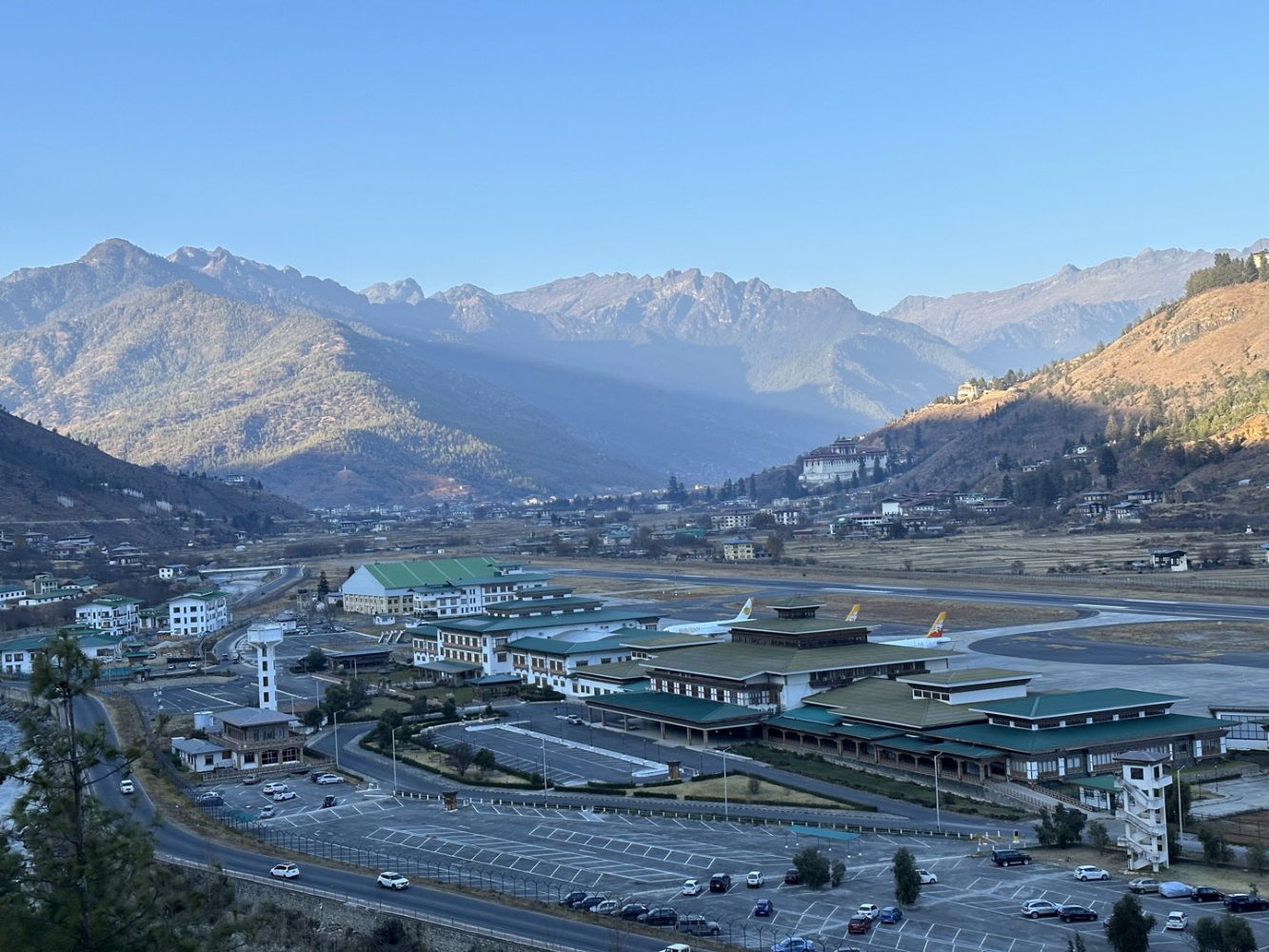It comes as no surprise that those with a passion to explore often find themselves yearning to traverse the breathtaking landscapes of Nepal.
It is a country of culture with more ethnicities and languages than concrete and establishments, an absolute haven for those seeking an authentic and diverse experience.
A cherished aspiration for many adventure enthusiasts, drawn by the allure of the world’s most iconic trails and peaks, Nepal is a trekkers paradise.
In an era of rampant globalization and a relentless quest for originality, there is a tendency to neglect the natural and cultural treasures that destinations like Nepal embody.
It is in this pursuit that the significance of a responsible trek cannot be overstated. The practice of responsible tourism is integral to preserving and respecting the immense strength and beauty that Nepal cocoons.
Responsible treks empower trekkers to make informed decisions that not only enrich their personal experiences but also contribute positively to the community.
Responsible trekking encourages a conscious approach where trekkers prioritize the environment and minimize negative footprints.
It is a mindful approach that encourages trekkers to appreciate the intrinsic value of their surroundings and engage in tourism with a sense of morality and ethics, a much-needed lesson for the extravagant world today.
Guidelines for responsible trekking in Nepal
It is crucial for trekkers to exhibit mindfulness in their interactions with the environment to ensure a conscientious trek.
The following are recommendations that will help you navigate the trails of Nepal as a responsible trekker:
Choose a responsible trekking agency
Trekking agencies in Nepal are in abundance but when aiming for a responsible trek, it is imperative to choose one that not only offers top-notch services but also prioritizes sustainability and environmental responsibility.
Look for a sustainable agency that is deeply committed to its role as an establishment for society.
One that seamlessly integrates the opportunity to have the best experiences with a strong dedication to promote sustainable tourism.
Your ideal agency should have an impressive track record of adhering to ethical and eco-friendly practices, demonstrating a commitment to the environment, culture and communities.
Be mindful of Porter rights
Responsible trekking organizations prioritize their porters and respect their indispensable roles in trekking expeditions.
Likewise, it is also crucial for trekkers to reciprocate similar understanding and respect towards porter’s and their rights.
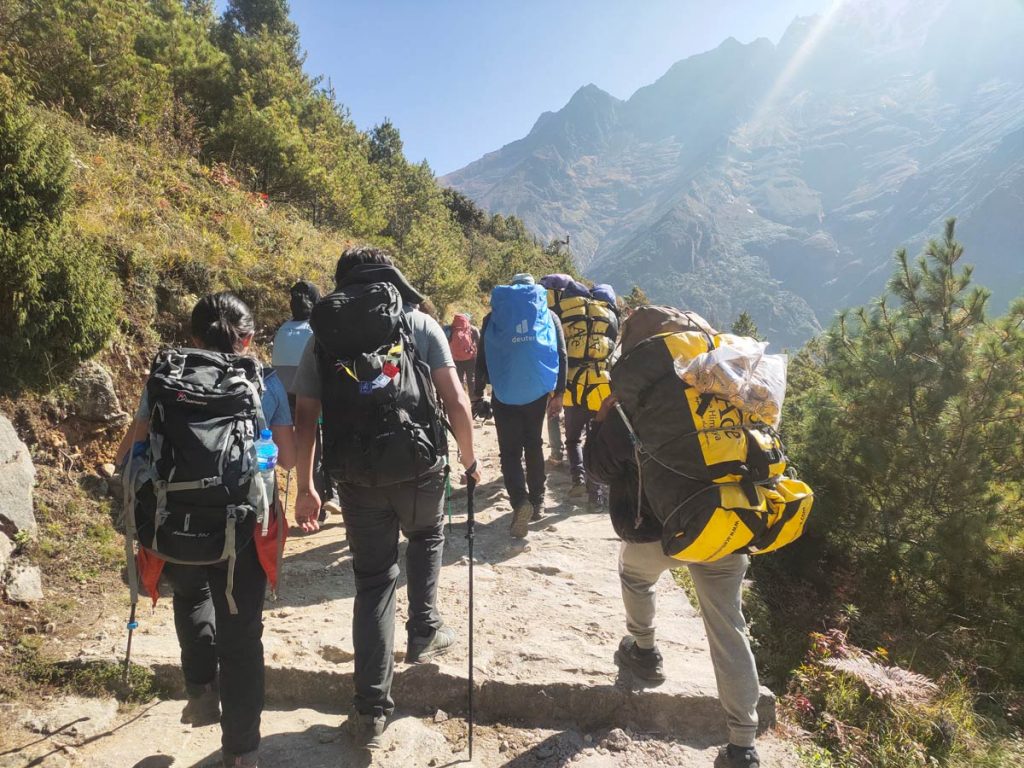
Having them carry excessive weight or stripping them of their rights to fair compensation, health and dignity is not just unethical but also undermines the principle of responsible trekking.
Understanding porters and their limits and abiding by the rules and regulations put forth by the signed agency is essential to uphold the principles of responsible travel.
Cultural sensitivity
Nepal is a country extremely rich in culture, boasting a vast array of traditions and an immense pride in its heritage, the country has a deep-rooted love for its origins.
Trekkers are encouraged to approach these sentiments with utmost respect and understanding.
While certain practices might significantly differ from what they are accustomed to, they should refrain from judgement and not disrespect local beliefs.
The people of Nepal are known for their humility and unparalleled hospitality. By exhibiting feelings of appreciation, trekkers can expect a harmonious and enriching cultural exchange.
Maintain cleanliness and hygiene
Trekking allows access to unexplored and auspicious areas often considered sacred and unique.
The detrimental impact of negligence in such areas isn’t just environmentally hazardous but also uncivil.
There have been various instances where popular trekking spots have been polluted and adversely affected due to ignorance from much of the trekking population.
To foster responsible trekking, it is important that trekkers adopt habits of hygiene and cleanliness, leaving little to no traces of themselves behind.
Always Carrying a trash bag, ensuring that waste is properly disposed and minimizing waste are some simple yet effective measures to challenge pollution and maintain an ecological balance.
Support local products
Promoting the local products of Nepal by making little to significant purchases to last you through a trip or as a memorable souvenir can be immensely helpful to strengthen the local economy.
Opting for locally sourced goods not only helps support the area but also leaves a positive impact surrounding tourism on the local demographic.
Choose locally run accommodations, eateries and stores to directly contribute to the local economy which will further help leave a healthy impression.
Pack light
Minimalism helps immensely when trekking with the goal of minimizing waste and reducing negative environmental impact.
Packing light not only makes the trek physically easier but also contributes to waste management through minimized production of waste.
Follow rules and regulations
Abiding by the rules and regulations when engaging in trekking activities helps ensure the trekkers safety and control mishaps.
When trekking to restricted areas it is important to stay within the designated trail and carefully heed the instructions of the guides.
While camping trekkers should exercise caution and avoid settling in areas that are not approved for such purposes.
Compliance with these regulations helps preserve the integrity of the trekking experience.
Importance of responsible trekking
Responsible trekking bears immense significance in the world, it helps conserve for later and make the most out of what remains of the environment today.
Here are several reasons why responsible trekking should be a mandatory practice:
Sustainable Tourism
Responsible trekking and sustainable tourism are intrinsically linked concepts.
Sustainability refers to longevity, where sustainable tourism refers to an industry where touristic exchanges are long termed through mitigation of environmental harm and injustices.
While such a state can be achieved through various means, responsible trekking is one of them.
Trekking, a popular choice for nature and adventure enthusiasts, constitutes a significant portion of the tourism industry.
Responsible trekking involves minimizing negative environmental and social impacts, fostering an understanding of the local culture and heritage while actively contributing to the local economy.
These practices consciously pave the way for a sustainable future.
Wildlife conservation
The wilderness serves as habitat to diverse wildlife.
When venturing into the woods, trekkers often come across numerous species not commonly encountered in their daily lives.
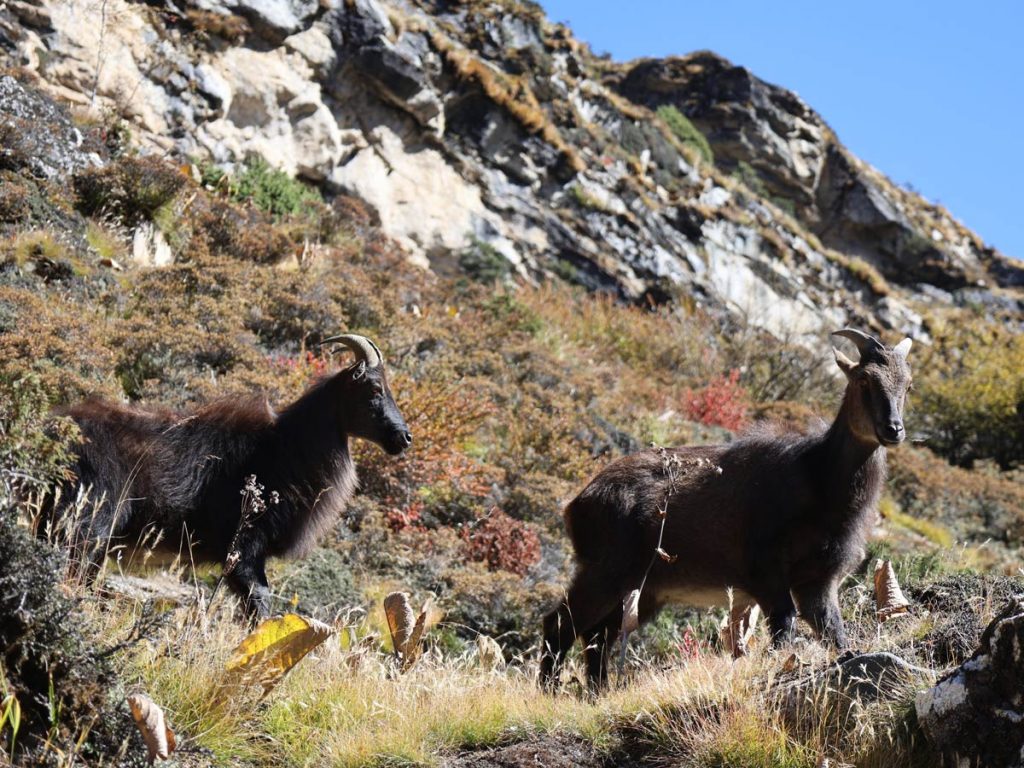
As thrilling as these experiences can be, the presence of human beings can often lead to creatures feeling displaced in their own home.
Responsible trekking encourages trekkers to maintain a safe distance acknowledging the potential danger they themselves could face while also respecting the wild inhabitants.
Promotes deep travel
The idea of deep travel goes beyond the superficial allure of scenic landscapes, it drives enthusiasts into fostering a deeper connection that extends beyond physicality.
It prioritizes the cultivation of meaningful experiences over the conventional pursuit of picturesque destinations.
Through responsible trekking, trekkers unearth a profound bond with both the natural and the cultural environment they encounter on their journey.
The trek becomes less of a physical endeavor and more of a spiritual undertaking.
Protects culture and heritage
Nepal’s cultural legacy is one of its finest assets. The intricate blend of our past to our present, deeply rooted in our traditions, makes our culture exceptionally precious to us.
While trekking is often perceived as an elusive endeavor, it transcends the exploration of pristine natural landscapes, serving as an opportunity to immerse oneself in diverse cultures, building connections with people encountered along the way.
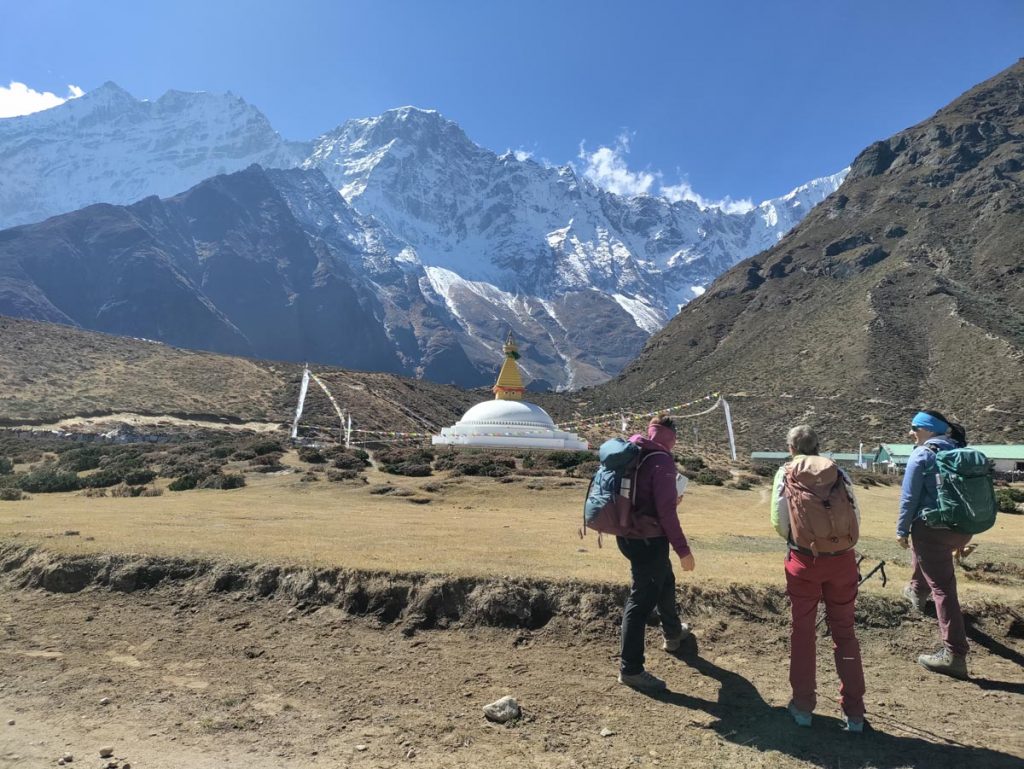
Responsible trekking becomes a means to explore these traditional assets without imposing significant changes that strip these destinations of their unique identity.
Trekkers are encouraged to adapt and appreciate the enduring way of life that has defined the people of Nepal for generations.
Environmental Conservation
The paramount significance of responsible trekking lies in its dedication to environmental conservation.
Despite tourism often regarded as the least damaging industry, the interactions within say otherwise.
Nepal, endowed with a wealth of diverse, stunning landscapes and natural resources stands as a testament to the importance of safeguarding its environment.
Responsible trekking becomes the means through which trekkers are encouraged to minimize exploitation and appreciate the delicate ecosystem.
Climate change awareness
Through close and personal contact with nature, responsible trekkers often witness the firsthand impacts of climate change.
Particularly in countries like Nepal where cherished peaks are gradually melting, temperatures frequently changing and the ecological zones experiencing shifts, the issue of climate change is crucial.
Trekkers can play a pivotal role in supporting and encouraging global initiatives, by actively minimizing the carbon footprint and advocating for sustainable practices, responsible trekking can intensely change the worldview.
Initiatives from Ace the Himalaya
Ace the Himalaya has consistently worked towards advancing eco-tourism and sustainable practices, holding a deep and unwavering commitment to these values.
As a testament to its dedication the company has been honored with the Travelife sustainability award which recognizes the company’s continuous efforts in sustainable tourism and corporate social responsibility.
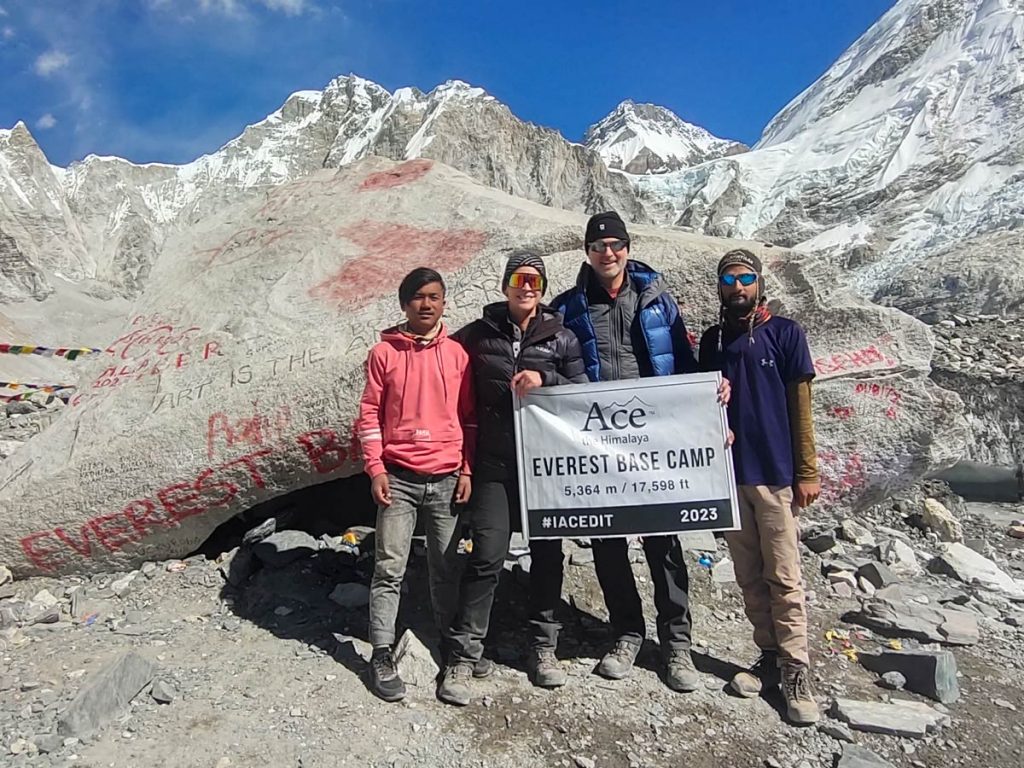
Notably, the Travelife certification is aligned with the criteria set by the UN supported Global Sustainable Tourism Council (GSTC), the highest global authority overseeing sustainability in tourism.
Through persistent and comprehensive efforts, Ace the Himalaya is committed to remaining a responsible trekking company.
Extending beyond the welfare of its trekkers to actively contribute to the preservation and sustainability of the trails that make the trekking experience possible, Ace the Himalaya is a powerful benchmark.
